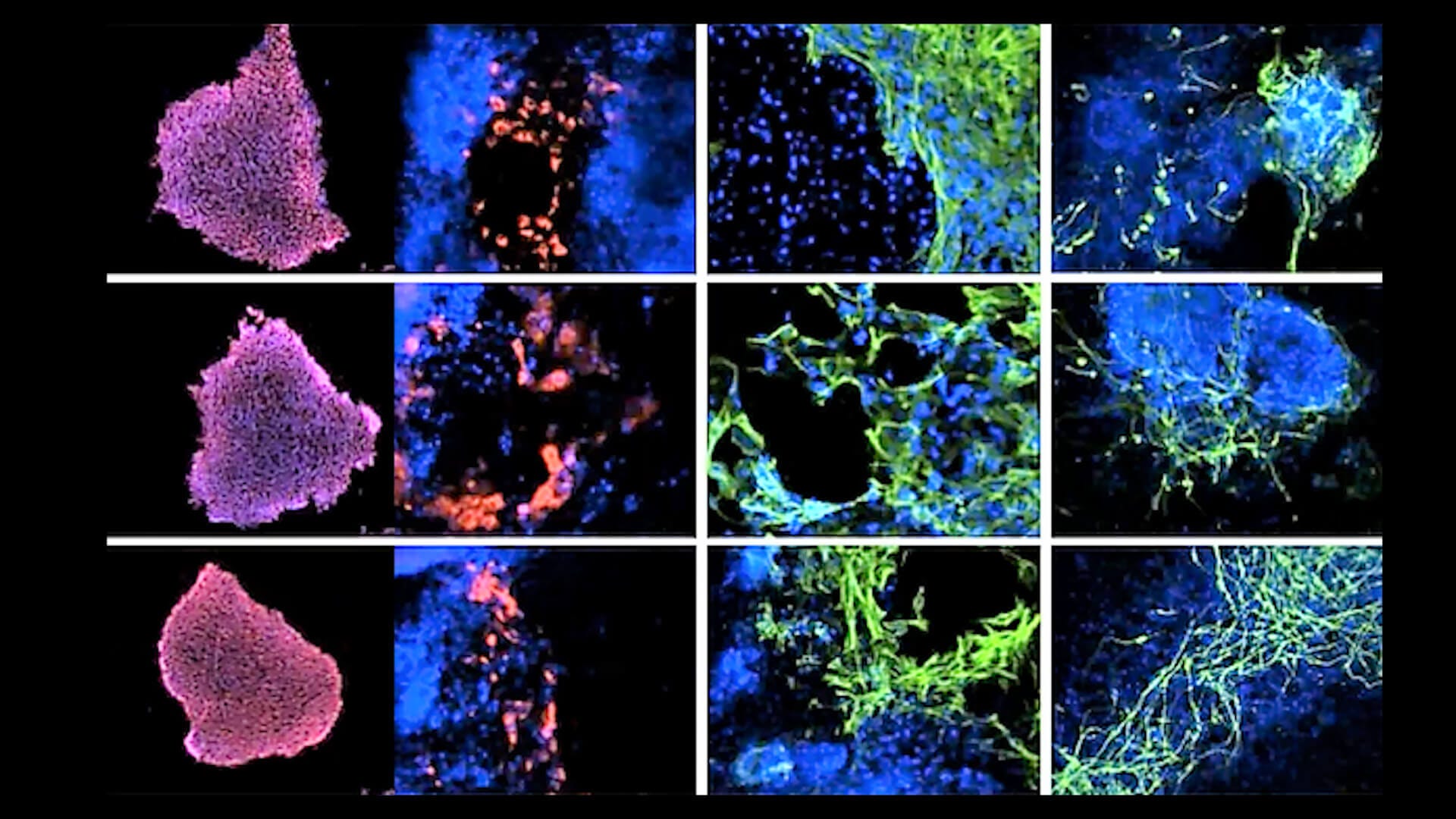Neurological Disease Modeling
Due to the difficulty in obtaining human brain tissue for experimental studies, animal models have traditionally been popular tools for neurological disease modeling and therapeutic evaluation. In recent years, however, researchers have begun using induced pluripotent stem cells (iPSCs) to generate more representative models for studying human neurological disease. These iPSC-based models, including iPSC-derived neurons, glia, neural organoids, and co-cultures, hold tremendous potential for drug discovery applications and studying human neurological disease. Researchers can now generate patient-specific differentiated cell types, bridging the translational gap between studies using animal models and clinical research.
We’ve created these resources to help you with your research in neurological disease modeling and drug discovery, and to give you a taste of what others are doing in the field.
Modeling Genetic Epilepsies with Induced Pluripotent Stem Cells
In this webinar, Dr. Andrew Tidball discusses current and potential uses of iPS cells for modeling epilepsies, how to develop different iPS cell-based model systems, as well as the key advantages and drawbacks of using these model systems.
View Now >- Cerebral Organoids as 3D, Stem Cell-Derived Models of Tuberous Sclerosis ComplexIn this webinar, Dr. Juergen Knoblich presents data from his preprint, "Cerebral organoid model reveals excessive proliferation of human caudal late interneuron progenitors in Tuberous Sclerosis Complex".
- Madeline Lancaster on Brain Organoids: Modeling Human Brain Development in a DishIn this webinar, Dr. Madeline Lancaster, who has done groundbreaking work in the development of cerebral organoid technology, discusses the latest developments in cerebral organoids and provides a comparison of different 3D model systems being used for neurological research. Research in the Lancaster lab focuses on human brain development using cerebral organoids, a new in vitro model system for neurological development and disease research. The laboratory uses these ‘mini-brains’ to study the most fundamental differences between human and other mammalian species’ brain development - essentially, what makes us human. The lab is also studying cellular mechanisms of, and potential therapeutic avenues for, neurodevelopmental disorders such as autism and intellectual disability. This webinar is just one of the educational resources on neural organoids that we’ve developed to help you navigate this exciting field. Visit the <a href="/discover-organoids/neural">Neural Organoid Information Hub</a> to learn more. <!--Dr. Madeline Lancaster is a Group Leader in the Cell Biology Division of the Medical Research Council (MRC) Laboratory of Molecular Biology, part of the Cambridge Biomedical Campus in Cambridge, UK. Research in the Lancaster lab focuses on human brain development using cerebral organoids, an in vitro model system for neurological development and disease research. The laboratory uses these ‘mini-brains’ to study the most fundamental differences between human and other mammalian species’ brain development - essentially, what makes us human. The lab is also studying cellular mechanisms of, and potential therapeutic avenues for, neurodevelopmental disorders such as autism and intellectual disability. In this talk, Dr. Madeline Lancaster provides an overview of brain organoids and discusses new modifications/advances in the field, including recently modeled neurological conditions. She compares different 3D model methods and talks about future potential of the technology.-->
- The Road to Functional Human Neuronal Circuits in VitroActive neurons are a vital part of a functioning brain and an essential component of in vitro neurological models. In this webinar, Dr. Cedric Bardy talks about why and how he invented BrainPhys™, a new neuronal basal medium that better supports neuronal function in vitro, described in C Bardy et al. Proc Natl Acad Sci USA, 2015. Dr. Bardy describes how BrainPhys™ increases the physiological relevance of primary and hPSC-derived neuronal cultures in vitro.

